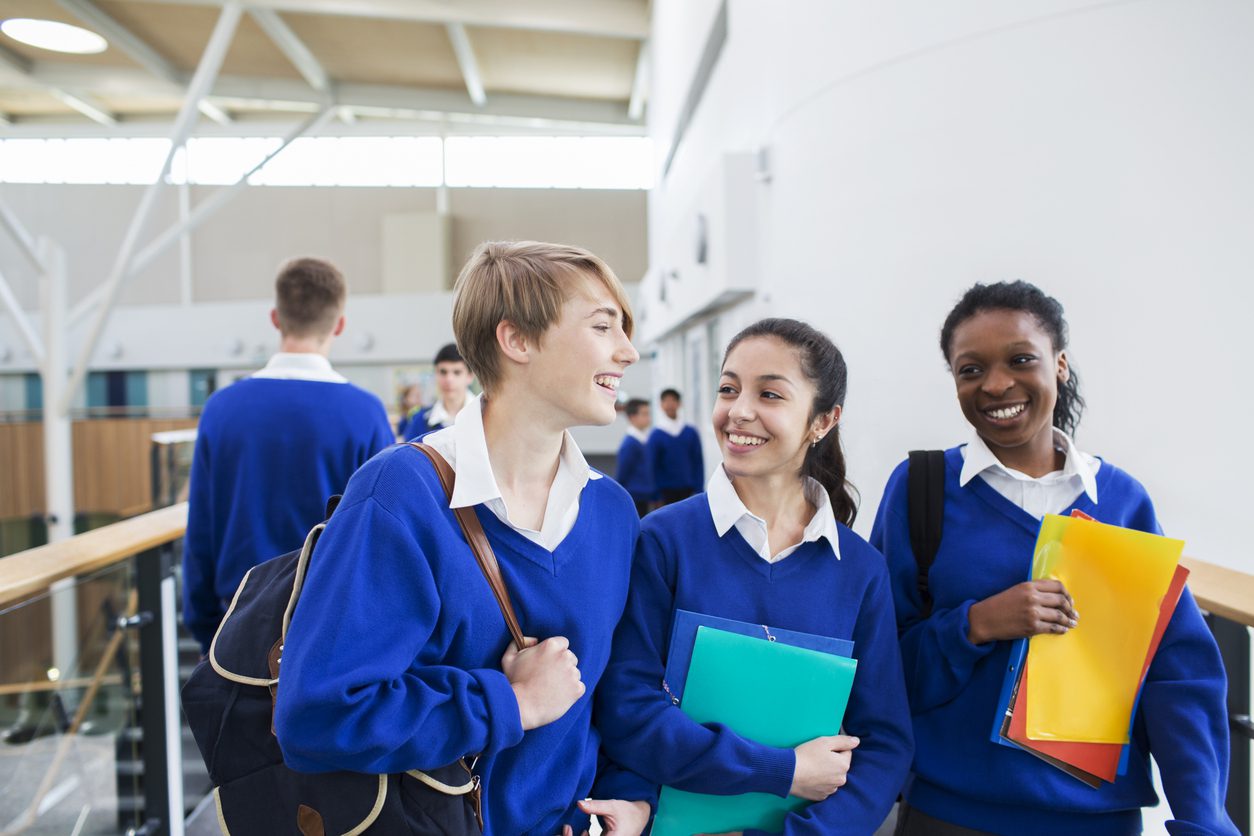
15/04/24
4 min read
Nuffield-funded research broadly supports the aspirations of the proposed reforms and identifies potential implementation challenges, says Programme Head, Emily Tanner
The Government’s proposed Advanced British Standard provides an opportunity to think afresh about how to design a system that supports all young people’s career aspirations, builds the skills and knowledge needed by the changing labour market, and brings England closer to its international counterparts.
As a longstanding funder of education research in the UK, the Nuffield Foundation has drawn on a wide range of Nuffield-funded evidence in its response to the Advanced British Standard consultation. In our submission, we consider how the proposals affect young people from diverse backgrounds and the education system pre- and post-16-19 phase.
Ten key points from our response to the Advanced British Standard consultation
- England’s 16-19 qualifications system is narrow compared to other OECD nations and this presents challenges in a labour market which increasingly demands workers with broader technical and essential skills. There is also a specific need for greater capability in numeracy for the data science and AI sectors. Research supports the continuation of Maths in some form to age 18, but alternative pathways tailored to need and ability will be key to maximising student engagement and outcomes.
- Labour market projections indicate most of the growth in occupations in the next decade will be at higher skill levels. The skills most in demand include communication, collaboration, information literacy and problem-solving – making the case for continued study of English in some form in the 16-19 phase.
- The influential Nuffield Review of 14-19 Education and Training and more recent research, support greater alignment between academic and vocational pathways. A unified framework with simplified options at 16 could break down the barriers for students at all attainment levels and may be particularly beneficial for lower attainers. It will be a considerable undertaking to align institutional structures to implement this goal effectively within a context of pressured budgets. It will also lead to further divergence between the UK nations.
- The two Level 2 routes proposed recognise that amongst lower attainers, those who have just missed the GCSE thresholds for continuing to Level 3 may be effectively supported to progress through the transition programme. Meanwhile, students who are further below the threshold may benefit from the occupational programme which provides direct support towards employment. Consideration should also be given to how students are supported to prepare for occupational programmes during Key Stage 4.
- The employability, enrichment and pastoral (EEP) element of the ABS should connect explicitly with the existing ecosystem of Gatsby Benchmarks, Careers Hubs and employers working with schools and colleges. They are best placed to design EEP programmes that help young people develop essential skills and connect their learning with the world of work.

- Ongoing and chronic issues with teacher recruitment and retention will be a major challenge for scaling up the workforce to implement the ABS. Nuffield-funded research tracks teacher labour market data annually and offers evidence-based solutions rooted in a deep understanding of the profession.
- Access to the ABS requires both renewed efforts to close the disadvantage gap at GCSE and sufficient support to ensure retention on ABS learning pathways. After a decade of disadvantage gaps narrowing they have widened again with the differential impact of learning loss and grading through COVID-19 playing a significant role. Disadvantaged students are further behind at the 16-19 phase, even when controlling for GCSE results.
- Vulnerable groups including those who have been excluded, who have experienced youth custody, who are looked after or care leavers and children with SEND, are likely to benefit from additional career guidance during Key Stage 4. This advice should focus on helping students to make choices about which ABS pathway and subjects to select, and include ongoing support from 16-19 providers to aid retention and achieve a successful outcome.
- The introduction of the ABS provides an opportunity to improve pathways into higher education, higher technical qualifications and apprenticeships. Involving education providers, employers and career guidance professionals in the design will be essential for implementation success. Research on higher education outcomes for BTEC students and access to selective universities according to background offers insights for designing effective approaches.
- Rapid and hard-to-predict developments in AI and associated technologies may have significant implications for the foundational knowledge and skills that young people will need to develop in the 16-19 phase. The curriculum also needs to incorporate education on AI – how best to use it and ensure effective learning from it, how to deal with information overload and misuse, and a more complex and fast-evolving conception of data literacy. This is an area the Nuffield Foundation, with the Ada Lovelace Institute, is actively thinking about.
Upcoming research will add to the evidence base
Looking ahead, significant Nuffield-funded work will produce insights relevant to the Advanced British Standard and wider post-16 education policy over the coming year. In Autumn 2024, NFER’s Skills imperative 2035: Essential skills for tomorrow’s workforce propose solutions to the mismatch between skills demand and supply, drawing together the evidence from the first four working papers. At a similar time, the University of Oxford and the Education Policy Institute will conclude their UK comparison of post-16 policy, pathways and outcomes with recommendations for tertiary education policy. This will be followed in 2025 by detailed analyses of specific policies from projects such as Raising the participation age and The long-term impact of the Education maintenance allowance aimed at improving education engagement and outcomes among disadvantaged young people.



















































